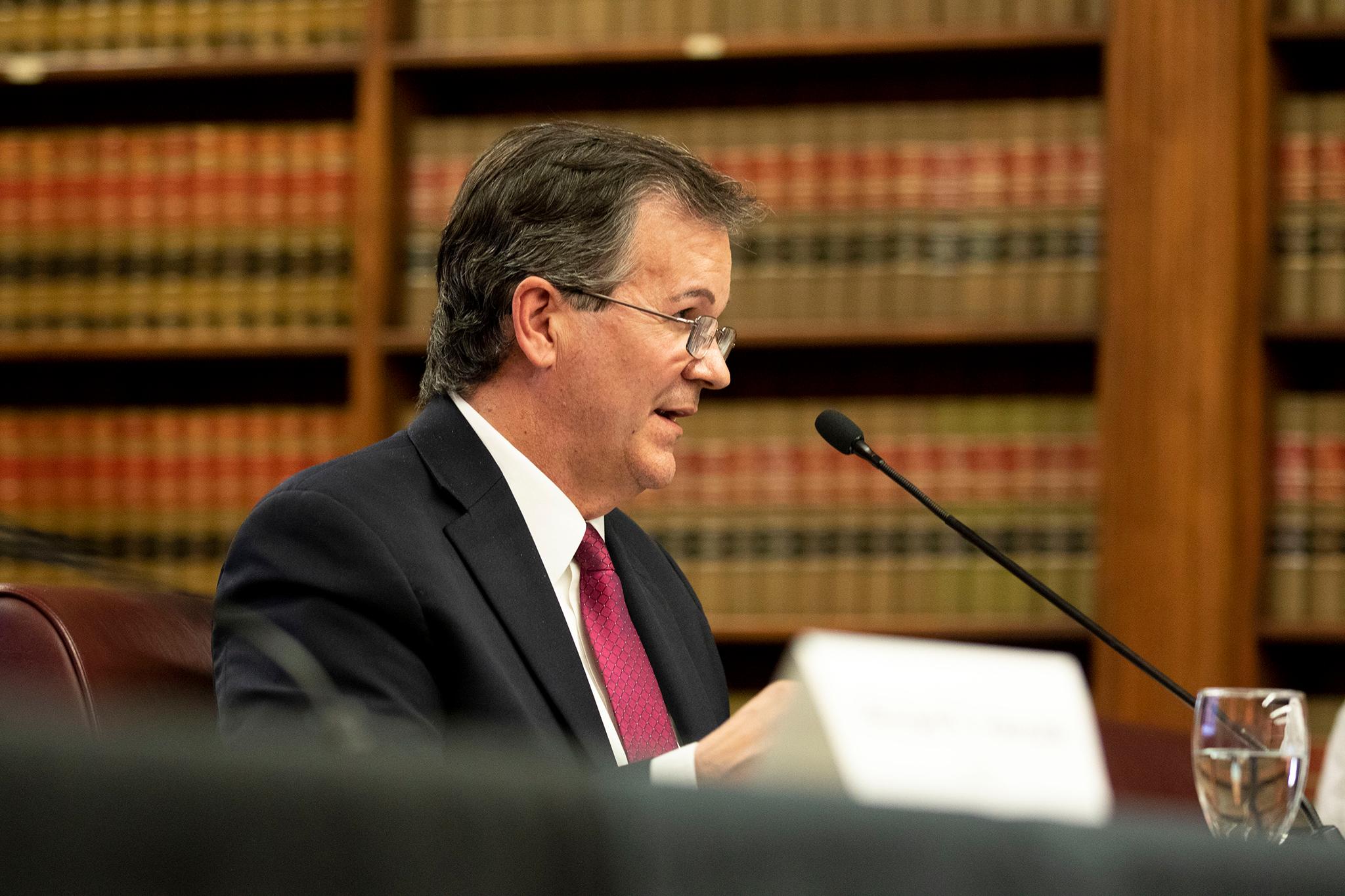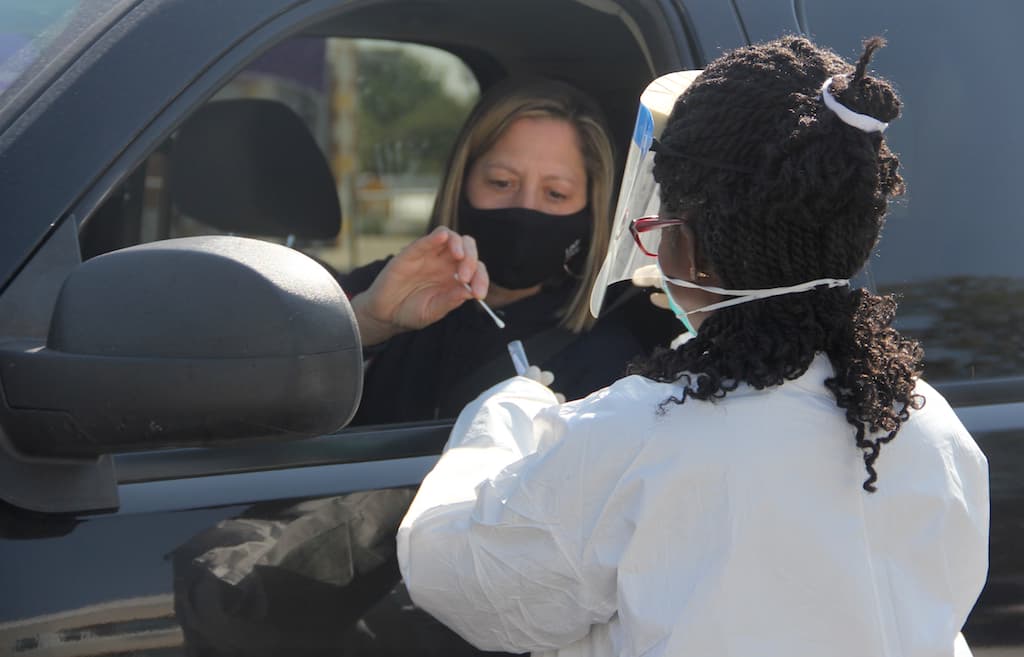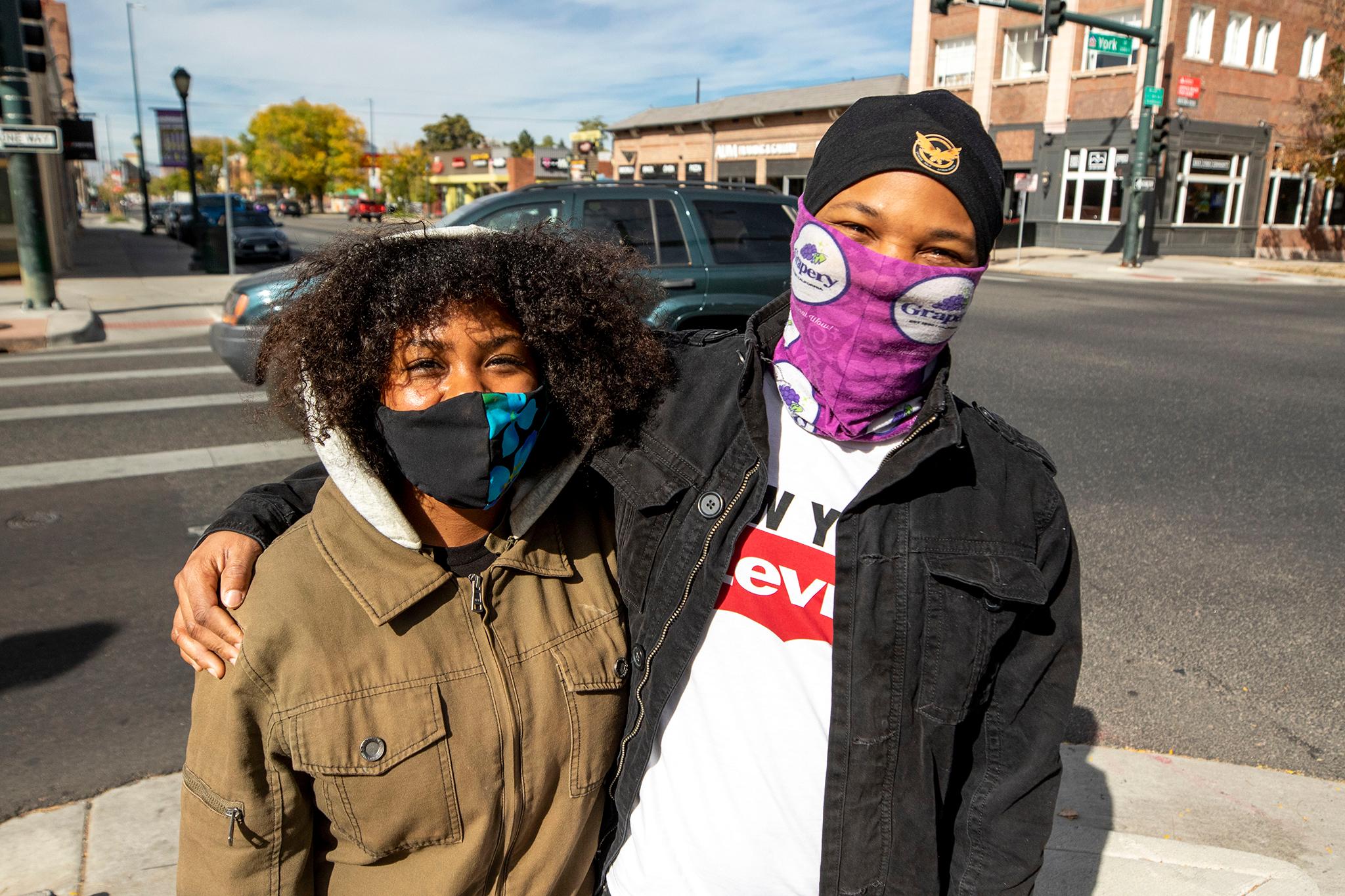Both public health and health care experts agree many people are experiencing at least one collective feeling about all these coronavirus rules the moment: fatigue.
It's happening during the worst possible time, as COVID-19 cases continue to surge in Denver and as the state enters its third wave.
City Public Health Executive Director Bob McDonald said this week cases are now higher than they've ever been in the city.
The spike prompted the city to beef up its public health orders, including one that requires people to wear face coverings outside and limiting groups of unrelated folks hanging out to five or fewer people. It's a step up from the requirement for people to wear face coverings while in most indoor spaces for people working and visiting businesses. That first face covering order was put in place in May.
"I think people are tired of having to comply with public heath orders. But we can't give up now," McDonald said this week.
McDonald said the city needs to take every action possible to stop the upward trend in cases, adding the city is thoughtful about the orders it issues. He suggested requiring people to wear face covering outside since the first face covering order began in May could have possibly meant even more fatigue, leading to less compliance by this point.
He said you can still go to your favorite restaurant or hair salon or store or hike. You just need to do it with the proper safety measures like wearing a face covering and physical distancing.
A spike in cases are no longer being driven solely by college-aged students, though McDonald said people in their 20s and 30s do make up a big chunk of cases in the city. McDonald said what's leading to an increase in cases is people's resistance to wearing face coverings and gathering in large numbers.
McDonald said the city's enforcement teams are still seeing people of all ages gathering in large, mask-less groups at parks and outside places like restaurants on Friday and Saturday nights. More than 2,600 mask-related warnings have been issued since the city moved to a safer-at-home phase in May, according to figures provided by the city's public health department. Businesses have been cited and some cases closed for violating other public health orders.
Figures from the city's public health department showed that between May 14-31, 84 percent of businesses the city visited were observed to be in compliance. But a larger look, between May 14 until this Tuesday, shows 70 percent of businesses visited were observed to be compliant.
Dr. Michelle Barron, an infectious disease doctor at UC Health, said she's been involved with COVID-19 response as the medical director of infection prevention for the hospital system. Barron has been following the disease's progression since January.

Early on, Barron said there was confusion about whether face masks were effective as people got mixed messages from the press and elected officials. But data now shows that using face coverings has a significant impact on reducing transmission. Wearing face coverings helps protect others from your droplets, which is that little bit of spit you may unknowingly send out while you talk.
Wearing a mask indoors while being 6 feet apart is appropriate; that 6-foot barrier is recommended because that's roughly how far droplets can travel. Being outside is a bit of a different story, though. Barron points out that there likely isn't an issue with taking the mask off once you step outside as long as you keep maintaining that 6-foot barrier.
But often times, human nature comes into play. Barron acknowledges how weird it could feel to meet up with someone and have to stay 6 feet apart.
"The problem is, I think everyone's so tired and just wants to be like normal -- whatever normal is," Barron said. "And so, especially if you're meeting with your friends, you intend to stay 6 feet away, but you end up getting closer to them than you planned and you were talking and then you didn't realize it."
So even though you're outside, the potential for transmission is still there without a face covering, Barron said. She suspects this is why the city changed its rules, as it went with an all-hands on deck approach. The upcoming flu season is another reason why the city said it wants people to make sure they're following the health orders.
University of Denver psychology professor Kim Gorgens serves as a COVID-19 response coordinator for the university, which has had several COVID-19 outbreaks among its students.
Gorgens said requiring people to wear masks outside could have a "social norm" aspect for people. She referenced a study released last week by Marquette University researchers that looked at shoppers in Wisconsin and suggested women, urban and suburban residents were more likely to wear face coverings. She said Denver, as an urban setting, likely has higher compliance rates for face coverings.

Gorgens said it's now a tipping point where mask-wearing become the norm for most people.
"There's the flip side of mask wearing become the norm, which is this conversation about COVID fatigue," Gorgens said. "That compliance fatigue, that people have perception that they've made sacrifices and (say) 'OK, I've been wearing a mask since March, for Christ's sake.'"
Another question McDonald said he often gets is about a legal right not to wear face coverings.
"This is not about one's individual rights, this is about public health," McDonald said. "No one has the right to put others at risk."
Even health care staff isn't immune to that sense of fatigue and confusion over the right practices. Barron said the science and data behind certain rules evolved as the pandemic progressed.
"It's just like, 'Wait, you told us this and now you're doing this? Why didn't we do this all along?'" Barron said. "The answer is because the data may not have supported it early on. And also, we're learning. All of this is a learning experience."












